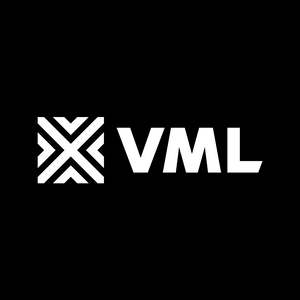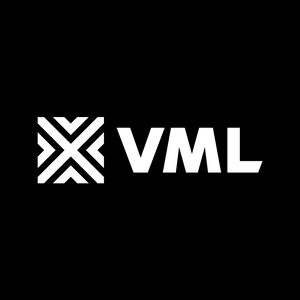
Why is this work relevant for Creative Business Transformation?
Packaging is a brand’s face. But in India, it’s the face of plastic pollution. With its products reaching 9 in 10 Indian households, Unilever needed a sustainable business transformation.
Smart Fill activated Unilever’s brand purpose and changed Indian shopper behaviour. People switched to an innovative sustainable packaging alternative, even if they didn’t care about the environment. Shoppers can bring their empty bottles to stores and Smart Fill them. This smart solution leverages the Indian cultural practice of repurposing, allowing them to save money. It works because they save, not only on packaging costs, but by purchasing smaller amounts.
Background
Approximately 36% of all plastics produced are for packaging, approximately 85% of which ends up as plastic pollution*. Unilever’s brand purpose is to make sustainable living commonplace. Taking responsibility for its impact on plastic pollution, the brand has pledged to remove more than 100,000 tonnes of plastic entirely, by 2025.
Unilever products reach 9 in 10 Indian households. With a population that’s equivalent to the sum of 12 of the largest countries, India has one of the world’s biggest plastic footprints*.
The future will only be about plastic alternatives. It was important than ever, for Unilever to future- proof its business with a sustainable packaging solution. We needed to re-examine the fundamentals of its business and creatively activate its brand purpose in stores.
Awareness about plastic pollution is at its peak because of recycling drives, clean-ups, waste segregation, and sustainability pushes. But only 9% of plastic waste gets recycled and viable alternatives are scarce.
The objective was to convince consumers and drive mass adoption of a sustainable packaging solution.
Plastic consumption needed to be reduced by 50+ Kgs/day to significantly impact the global target for 2025.
Our strategy had to turn ‘awareness but inaction’ into ‘actions that propel awareness’.
*Source: unep.org
Strategy & Process
Convincing consumers to adapt to a new sustainable alternative is challenging. We explored consumers’ stance towards plastic-free alternatives and identified five cohorts (slide 4, Information Deck).
1. Eco Warriors: Already leading sustainable lifestyles(5%)
2. Convenience Seekers: Awaiting effective alternatives(10%) 3. Value Seekers: Need value exchange to switch (20%)
4. Value Chasers: Prioritize value over sustainability(30%)
5. Unawares: Completely unaware (35%)
Eco Warriors and Convenience Seekers didn’t need convincing. Value Seekers, and Value Chasers did.
We needed to balance value and sustainability drivers to inspire behavioural change leading to conversions.
Forget R&D, forget products, forget the brand itself. The answer lay with the Indian shoppers and two nuances that stem from their resourcefulness mindset.
1: Culture of thrift. Unlike the West, Trade-offs are expected with every action. People carry their bags to a supermarket to avoid carry bag charges. It isn’t that they cannot afford 7¢ carry bag on a $70 bill, but they dislike wastefulness.
2: Cultural practice of repurposing used packaging. Cookie tins become sewing kits, soda bottles are converted into spray bottles.
Our strategy was to harness this resourcefulness and sense of thrift, without asking shoppers to sacrifice time and effort. So, what did we sacrifice?
Experience & Implementation
We sacrificed Unilever’s most valuable branding asset – its packaging.
We introduced Smart Fill, an innovative in-store commerce experience that encourages shoppers to use other brands’ plastic waste as Unilever packaging. Shoppers can Smart Fill and turn any empty container into packaging for Vim, Surf Excel, and Comfort.
The Smart Fill station is extremely easy to operate and is seamlessly integrated into the existing shopper journey.
- Bring any empty bottle to the store e.g. soda/other brands/Unilever
- Place the bottle under the dispenser
- Select the desired product and quantity
- Paste the product barcode on the refilled bottle
- Check it out alongside other products
Leveraging an existing practice makes it easier to get shoppers to carry their own bottles.
Discounts of up to 20% make Smart Filling more cost-effective than purchasing packaged products.
Shoppers are redirected from our own home care product aisles to the Smart Fill station.
It appeals to the consumers’ sense of resourcefulness. They save not only on packaging costs, but by purchasing smaller amounts. This leads to increased product trials.
Using other packaging dilutes Unilever’s brand recall, but it helps us transform the business.
We took away the branding, to build the brands.
Business Results & Impact
Smart Fill is an incentivised behaviour change model that has opened new channels for Unilever. Owing to the strong cultural nuance, the model is bound to only work in countries like India. But given the country’s population, it’s as effective as implementing the model in 12 of the world’s largest countries.
We have implemented a circular economy approach, where resources are kept in use in a closed-loop system, rather than thrown away. This has helped Unilever to cut its dependence on virgin plastic and reuse old plastic, successfully embedding its purpose into its business.
We optimised the supply chain by eliminating the processes of manufacturing new plastic packaging and labels.
1. Reached ~ 349 MM consumers.
2. 150 litres are Smart Filled per hour.
3. 85% repeat purchases.
4. We earned PR worth USD1.5 MM.
5. 57.2 Kg plastic reduction per day.
6. At a cost-effective rate of just $2,597 per station, we aim to introduce 10 new Smart Fill stations every month.
7. With such a simple and scalable model, we aim to reduce plastic pollution in India by 50%, before 2025.






